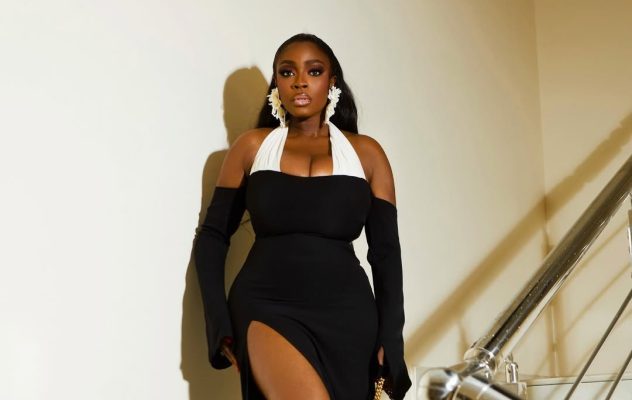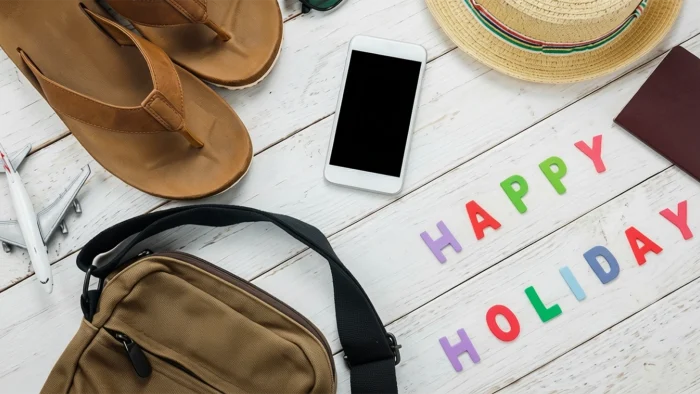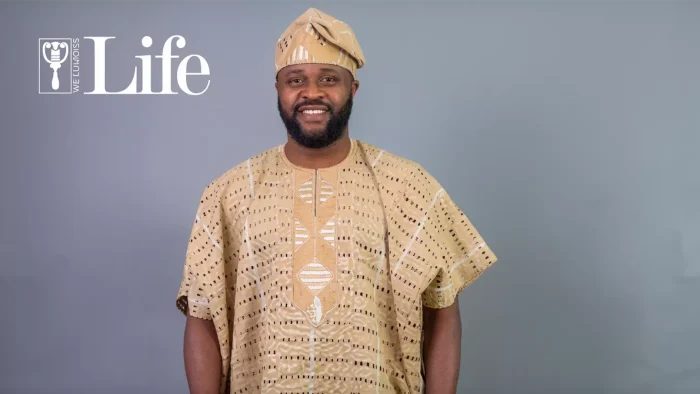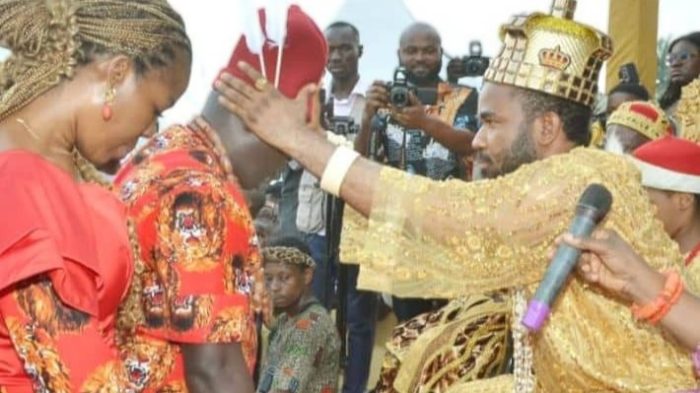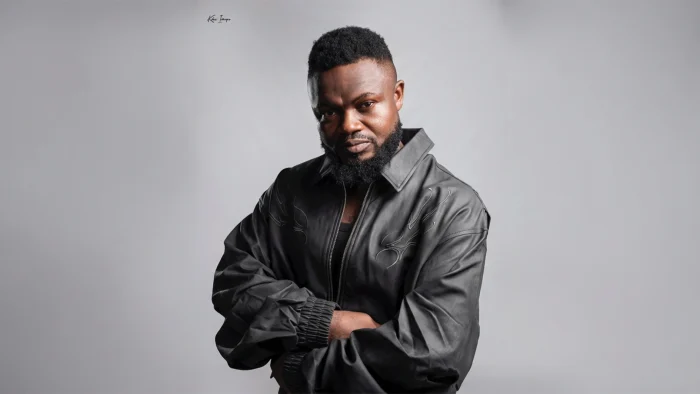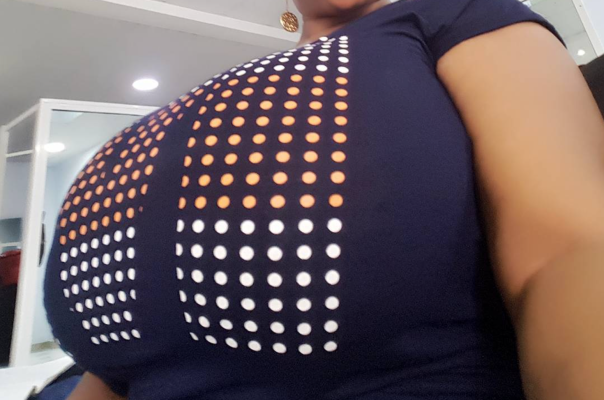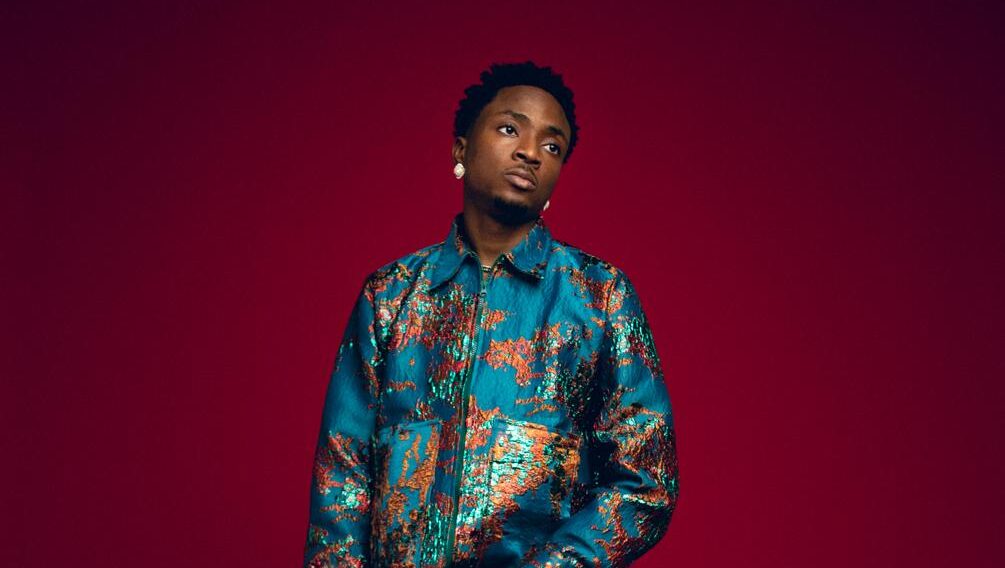
Gimba’s gong first struck across Afrobeats’ corridors in 2022, when he made a duet with Wizkid for DJ Tunez’ Blessings. The song, among his first releases, catapulted the young musician, born Al-Hassan Gimba Chukwubuikem, into the limelight as a promising Afrobeats act
[ad]
A product of the Sarz Academy, Gimba’s sojourn—from being in a recording camp for emerging acts to charting globally with one of his debut records—is a rare feat. With a Hausa father and an Igbo mother, the Lagos-based singer believes his unique blend of Soul, RnB, and Pop can foster unity across the country.
He channels this sentiment in his debut extended play, Amince Da Tsari, a five-track collection that highlights his experiences navigating life’s hurdles, including bitter-sweet love memoirs like the Olamide-assisted club-hit, Tingrado and the sensual bop Only U.
READ ALSO: When is next Grammys and how to watch 2025 nominations?
In this week’s Guardian Music, Gimba takes us through his vibrant take-off, reminiscing his come-up journey, creative process, and his mission to make music that inspires the next generation of artists.
[ad]
How did you come up with your name?
Gimba is my real name. I am from Nasarawa State, and in Hausa, ‘Gimba’ means stronger.
[ad]
How long did it take you to work on this project?
I made the fourth song on the EP while at SARZ Academy in 2022. I recorded it in 2022, but the other songs were recorded in 2023 and maybe 2024. I don’t want to say I spent two years making an EP, but I was making a lot of songs. Then I thought, “What songs can I pick for this project?” I have many songs, but which ones can tell the story of this? I don’t know. That’s the creation of the project.
[ad]
Tell us how you discovered your musical talent
Growing up, I paid more attention to music than the normal consumer, but I didn’t plan to be an artist. Until 2020, during the pandemic, my sister said, “No more hiding. Put yourself out there.” So, I sang covers of Wurld and Adekunle Gold’s songs. That night, I posted the cover videos around 6 PM, and by 9 PM, Wurld had commented. Around midnight, Adekunle Gold also commented. The following week, I posted another cover video singing a Fireboy’s song. Oxlade, Ckay, and Fireboy commented on the social media post. I thought that maybe I should just lock in, understand my music and develop myself. For over a year, I worked on this.
[ad]
In UNILAG, I met Twitch Papi, my producer. While studying for my diploma, I’d lock myself in the studio every day, recording new content, feeling comfortable with my voice, and finding my unique sound. Then SARZ Academy posted a video seeking artists and producers. I applied for the Excel Academy with Twitch Papi and OBO. Two weeks later, I received an email that I was picked. I submitted an unreleased song. At the academy, I discovered my sound. Sarz guided us to avoid mediocre music. After the academy, someone invited me to a music recording camp. I collaborated with DJ Tunes on my breakout song, Blessings and the rest is history.
[ad]
How did you navigate making other songs after that, despite the pressure of audience expectations?
Honestly, there was pressure because everybody’s different, and you have to adapt quickly. I was still living in the SARZ Academy with six other artists. We put out our album too. Obviously, I was being heard, but I was still under artist development. I had to trust my process, despite limitations. I needed to put myself out there but didn’t understand how to navigate the music industry. Everything happening to me was a first. So, at the end of the day, it’s about your mind.
Walk us through your creative process.
For me, music is very personal. All my songs are stories about me. Although it’s viable, I rarely create music based on vibes. Instead, I strive to make the vibe real and share authentic experiences. To achieve this, I need to feel connected to the music. My creative process is spiritual and intimate. Sometimes, I prefer minimal studio presence—just me and the producer. Occasionally, I’ll ask the producer to leave, wanting to record alone. Solitude allows me to clear my mind. I prioritise self-expression, untainted by others’ opinions. Before considering external feedback, I reflect internally. My thoughts are my guide. If I constantly seek others’ validation, I’ll lose authenticity. My process is deeply personal. I guard my creative space, ensuring genuine self-expression.
[ad]
What are your strongest influences, musically?
This project is a strong division of jazz because jazz music is something I fell deeply in love with. I wanted people to understand I’m being experimental with this project, being myself. I’m still in love with jazz, but everything happening around me affects my music perception. Before, for me, jazz was mostly relaxing music, except when I added African elements. Blessings sounds like that—deep and thoughtful.
[ad]
Touring clubs recently to promote my EP made me evolve personally. I’m more in touch with club music now. I didn’t know club songs before; now, I feel I’ve evolved. The next project will differ from what’s already out because I’ve met more people. I’m more confident, exposed, and eager. My identity remains rooted in my voice and artistic statements. I’m still myself, but more polished.
What are the core messages you were trying to put out on this project?
The title of this project alone is a Hausa phrase that means “trust the process.” So, this is me trying to tell my own story in my own way, regardless of pressures. With this project, I’m trying to tell people to trust their process. The track, Nightmares, which starts the EP, was inspired by pressure-related nightmares. Two tracks were inspired by pressure, and three were inspired by love. It’s just me telling people to trust their process, even when life gets crazy.
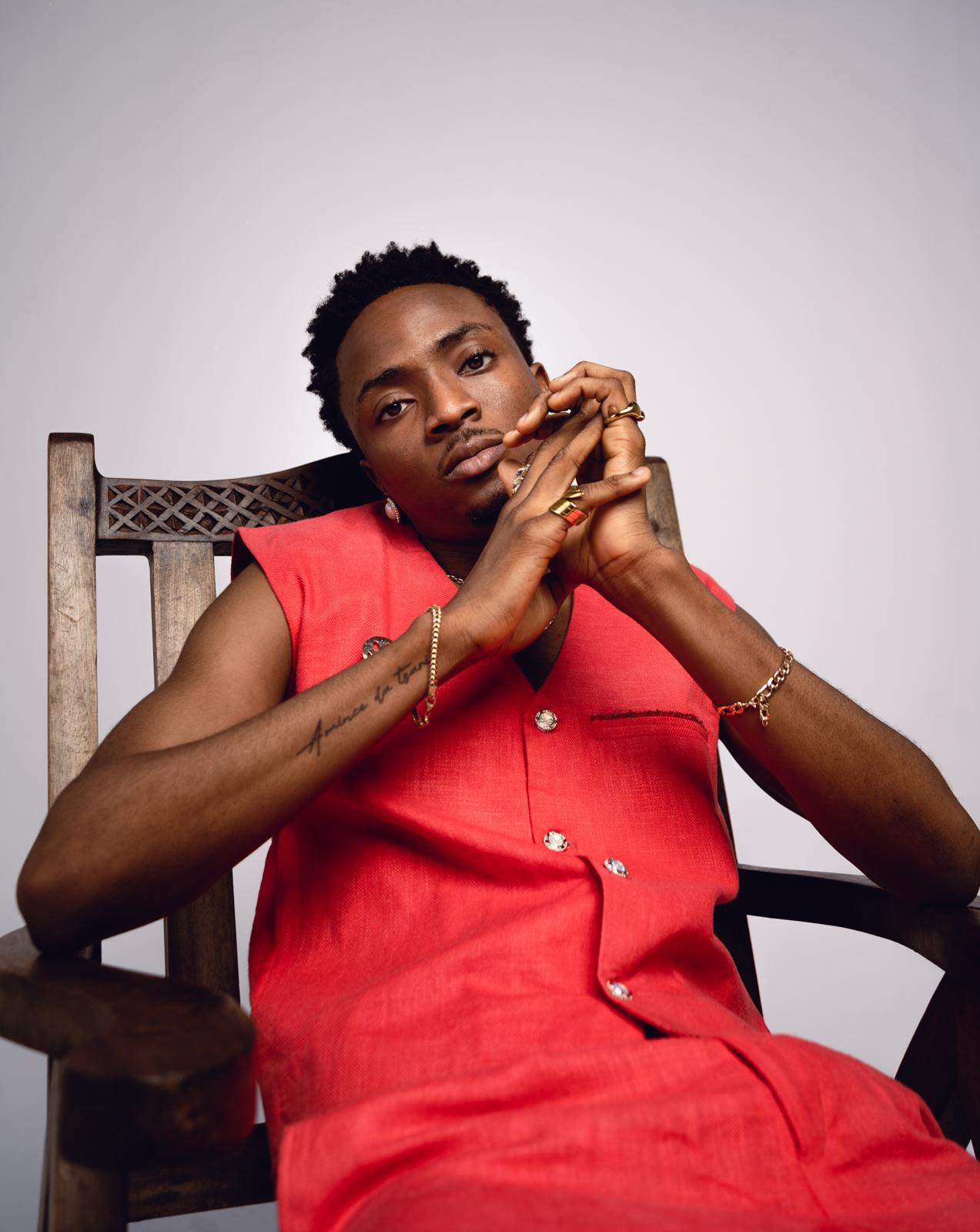
[ad]
Who would you like to duet a song with now?
I would love to work with Wande Coal again, Runtown, and Tems. I feel Wande Coal is the best singer and he understands music. I would love to be on a record with him. Runtown has an identity for music in terms of the kind of melodies he uses. It’s something I connect to on a deep level. Tems is one person I feel has been true to herself from the onset. But there are also a lot of people I would like to make music with.
[ad]
When you’re not making music, what do you do?
I love to play basketball. Recently, I started skating a lot. I love to play with my guys; I’m quite a playful person. And I like to spend time with my family, my loved ones, try out new stuff, meet people, and have fun.
What’s your vision as Gimba in the long run?
In the long run, I want to be able to build a community of people who believe in themselves, no matter what, no matter how different or weird it is. I feel I’m here to inspire a lot of people. I want to inspire young people to do what they want, regardless, of their way.
[ad]
I deeply love the arts, aside from doing anything else. I’m deeply in love with music and sound. I want to tell stories, teach people, and share ideas through my music. Because my dad is Hausa and my mom is Igbo, I feel like I’m a kid who can help unite Nigeria. I grew up in Lagos. I’m Yoruba by association. I like spreading love to the world through my art. That’s my vision. So I’m just taking it one step at a time, with every project I put out.
[ad]


